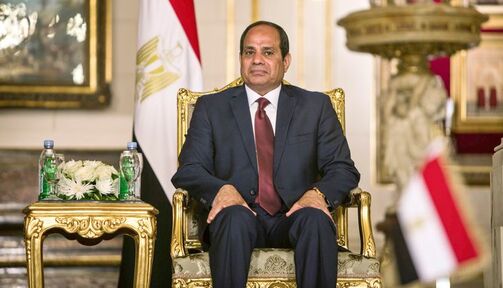On Egypt – Zvi Bar'el in Haaretz:
‘Egyptian Prime Minister Mostafa Madbouly showed up last Saturday to a meeting of senior officials in northern Sinai like a bookkeeper. He carried with him a precise list of the issues he wished to discuss: "Egypt produces 100 billion pitas a year, and 275 million pitas a day on average. The latest price increase added another 10 grush [piasters] to the cost of manufacturing of a single pita, in other words about 10 billion Egyptian pounds per year[about $37 million],” said Madbouly.
Madbouly reported to journalists that the cost of producing a single pita was 65 pisaters (0.65 pounds) before the Russian invasion of Ukraine and is now 90 piasters. Nonetheless, Egyptians who are entitled to subsidies pay only 5 piasters for this pita. The true price of a liter of diesel fuel is 11 Egyptian pounds, he said, but the real price people pay is just 7.25 pounds. In other words, the government subsidizes the price by four pounds, costing the treasury about 60 billion pounds (over 200 million USD).’
(…)
‘Now, al-Sissi is looking for a way to calm the IMF without upsetting the military. It seems the best solution would be establishing private Egyptian companies to buy the assets from the military on paper, yet allow the generals to keep running them.
Al-Sissi understands that he can't continue to waste money without accounting for it while simultaneously tightening Egyptians' belts. In December, he ordered the prime minister to present a detailed economic plan within a month for how the government planned to trim the budget, reduce inflation – which has now reached 20 percent – and lower prices. Even economics textbooks can't offer such a plan, but preliminary attempts are being made.’
(…)
‘As far as mosques are concerned, according to the Waqf ministry, Egypt has more than 140,000 mosques, 10,000 of which have been built during al-Sissi’s term beginning in 2014. As the number of worshippers in Egypt continues to drop, it seems the answer to why so many mosques are being built is political. As Al-Sissi fights the Muslim Brotherhood to the death, he wants to maintain the image that he supports religion.’
(…)
‘Egypt is worried that another visit of an Israeli minister to the Temple Mount or a grandstanding expansion of settlement construction could well lead to an outbreak of Palestinian violence in the West Bank, drag the Palestinians in the Gaza Strip into the violent escalation and this would lead later to uncontrolled protests in Egyptian cities.
“When Egyptians go out to demonstrate against Israel’s policies they receive public legitimacy and the regime will find it difficult to stop them,” an Egyptian journalist who works in the government media told Haaretz. “But such demonstrations have a life of their own and in a moment they can turn into a protest against the government, against poverty and waste, and we have a direct confrontation whose results can be lethal,” he added.’
(…)
‘The commentaries published in Israel after the Mengistu video was released explained that Hamas was under pressure from the families of Palestinian prisoners – so it is interested in speeding up the deal. But in light of the intensive Egyptian involvement, it seems Cairo is no less stressed to complete the exchange deal in order to intensify its cooperation with the Netanyahu government and demonstrate how essential Egypt will be down the road, so it can continue to leverage its influence and serve as a counterbalance to the expected ambitions of the new Israeli government.’
Read the article here.
Less worshippers, more mosques. It sounds familiar. Protests against Israel might easily become protests against al-Sissi.
The time that anger against Israel was the best way to allow the population to let off some steam are behind us.
And although also in Egypt the birth rate is declining, less children are being born now than a few decades ago, there is a still a surplus of young men. Many of them without work or long-term prospects, and: no work, no wife.
Egypt can easily explode once again, and we know, also from the Arab spring, an explosion doesn’t necessarily mean progress.
